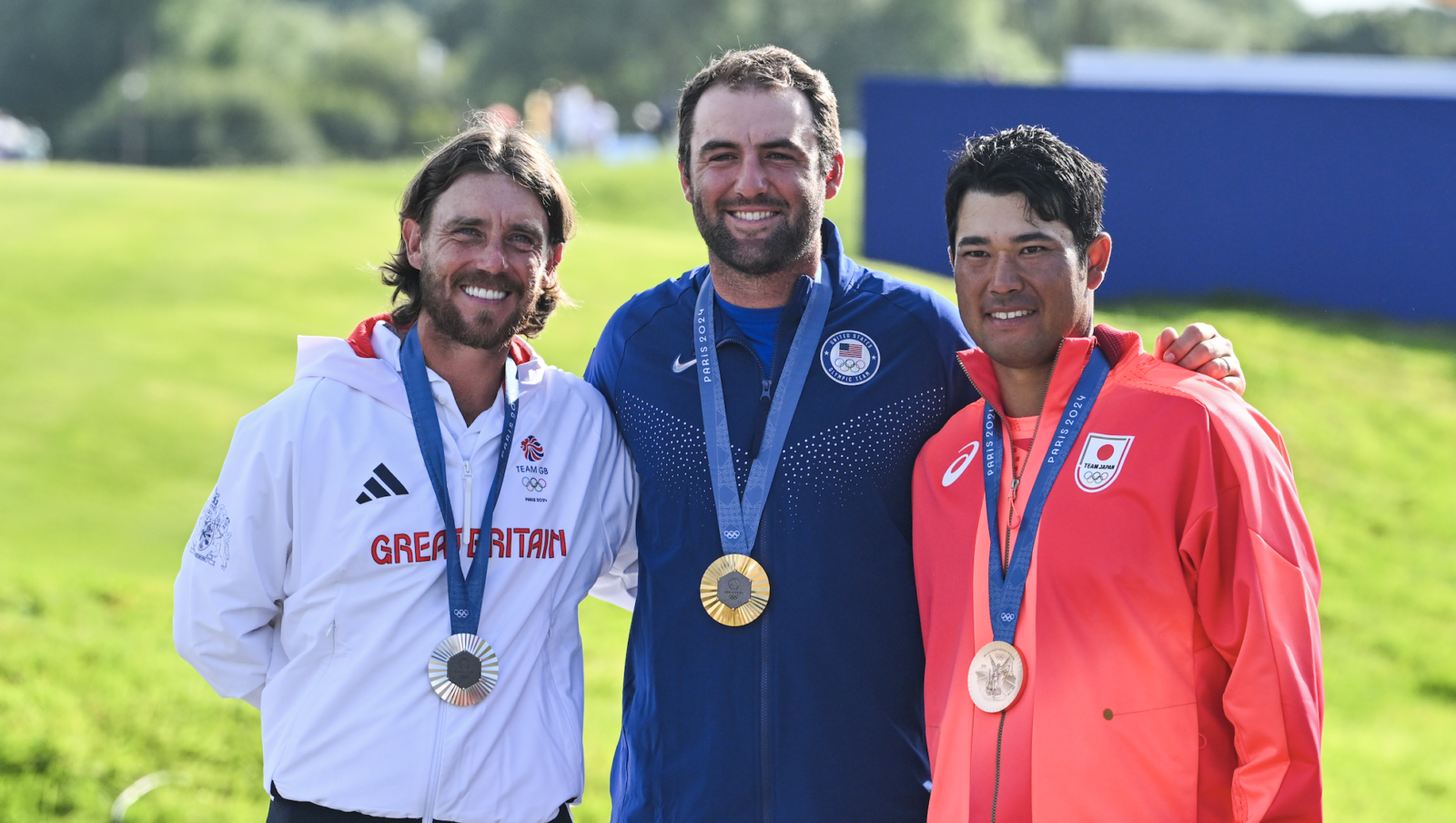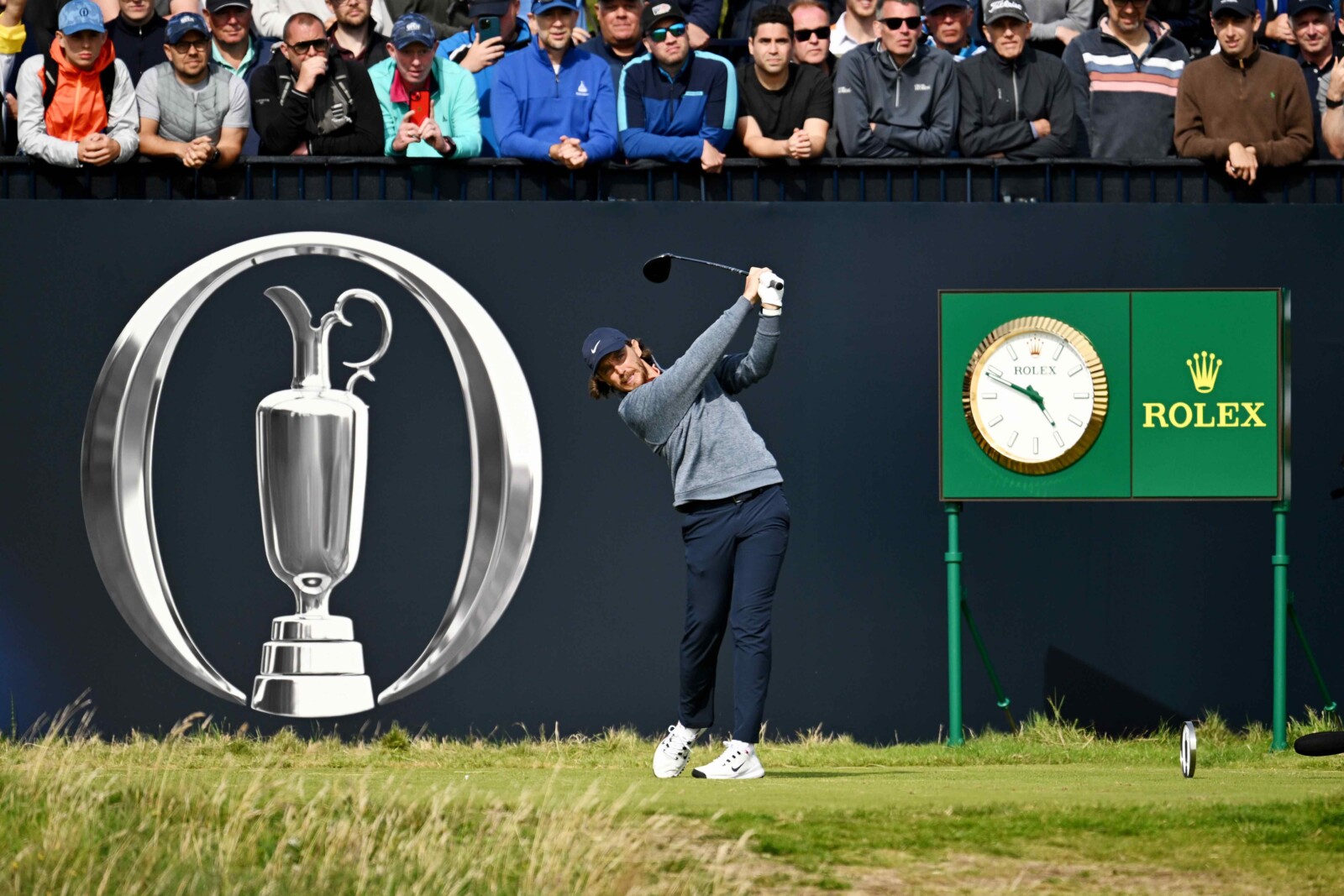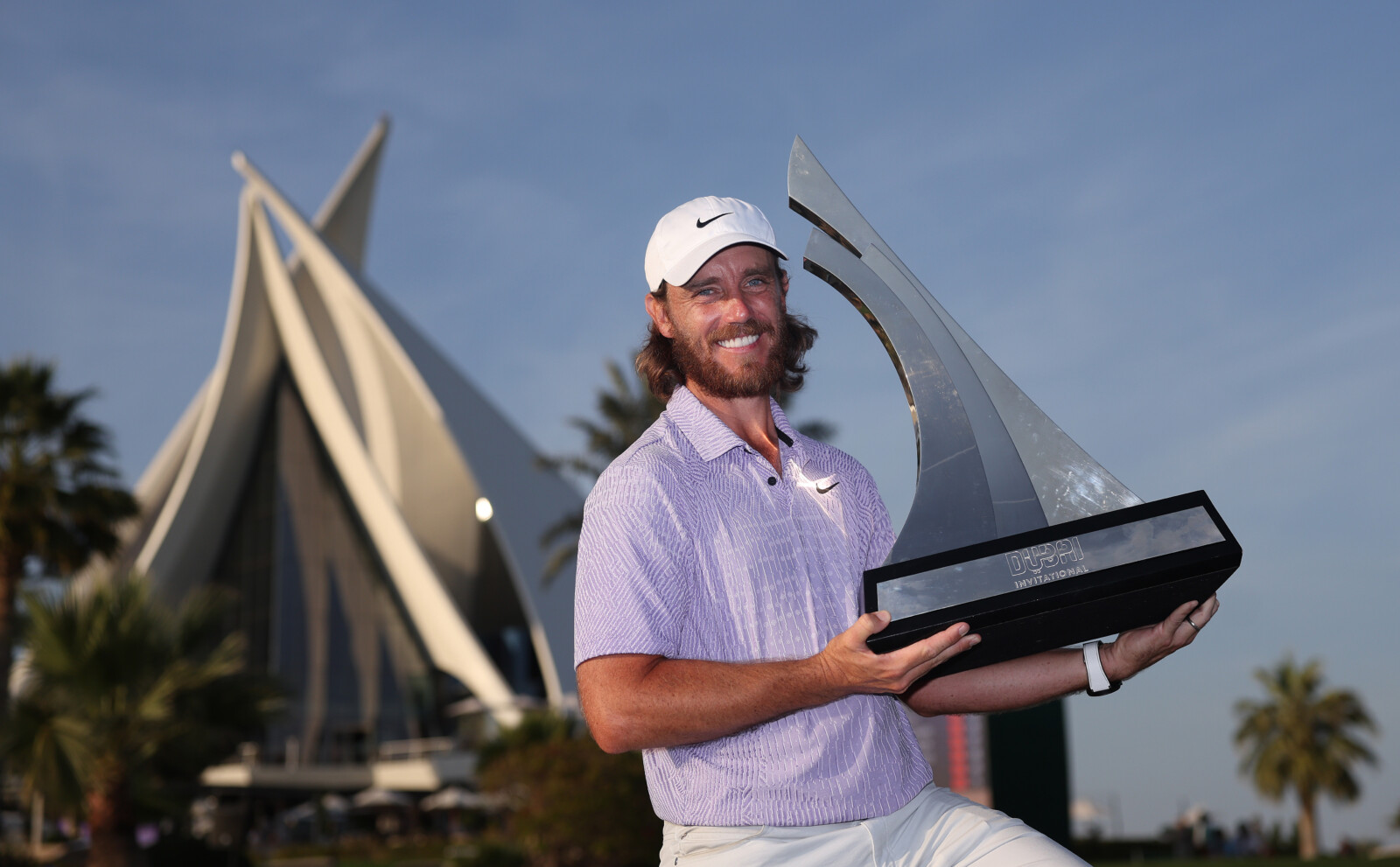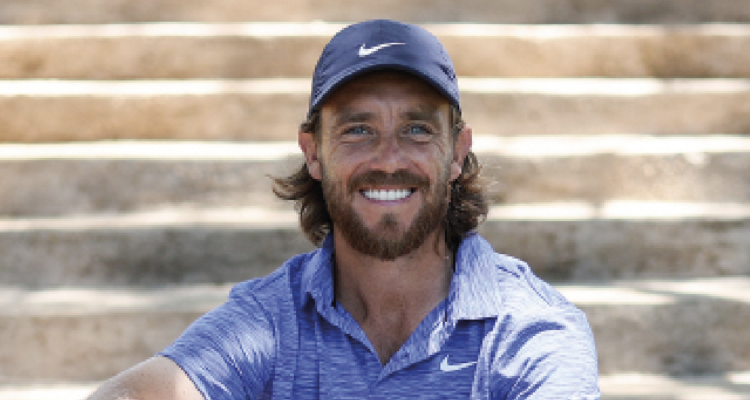Tommy Fleetwood reflects on a season that has seen him improve his world ranking, win the Dubai Invitational, and bring home silver for Team GB at the Paris Olympics
As things currently stand, you’ve moved up to 12th in the world ranking, but how would you assess your year as a whole, bearing in mind we still have a few events left on the DP World Tour to complete?
I feel like I’ve ground out some decent results this year without having had my best stuff. I’ve never felt completely comfortable with my swing, although there have been periods when it’s kind of clicked together.
It can get frustrating at times when you’re swinging it well, but then you’re putting is a bit off, and you don’t feel like your results are representative of how well you’re playing, but golf is like that sometimes.
I was proud of the way that I hung in there to make the Tour Championship as that could easily have got away from me, so to finish inside the top 20 in the FedEx Cup was decent.
Aside from winning in Dubai at the start of the year, and finishing third at the Masters, and, of course, second in the Olympics, I have had some good results this year, but nothing great that was going to have a massive impact on my career. It’s been consistent without many fireworks, if you like.
Except for finishing fourth, it is often said that winning silver is the hardest Olympic medal to celebrate, as it means to you came close to winning, but didn’t quite get the job done. Is that how it felt for you?
There’s a big part of me that was disappointed, of course, but at the same time, growing up I never dreamt that I would be an Olympic medallist, or be in with a chance of winning one, so to have an Olympic medal of any colour hanging around my neck is something I’ll always cherish.
Even on the last hole in Paris, normally I’d have sort of given that chip a go. I missed it, and I know I’ve lost the tournament, but I was still very nervous standing over that six-foot putt to win the silver medal. It was a very different feeling to standing over a putt to finish second in a regular tournament.
Overall, I’m unbelievably happy with the way the week went and the way I played. I enjoyed it so much. I take that away from it. It was an incredible crowd and atmosphere to play in front of, and it was such a great tournament to be a part of.
I haven’t been in the mix that much recently, and I think being back at Paris National, where we enjoyed success at the Ryder Cup in 2018, and playing well and feeling how I felt again, made it a very special week.

It’s obviously unique atmosphere representing your country. You played in the Tokyo Olympics in 2021 without crowds, so how did it feel to have the fans back waving the Union Jack and cheering you on?
I think the crowds were amazing, and it was a very different atmosphere to what we get to experience week-in, week-out in terms of the number of fans that are out there supporting their nation. It was just a completely different vibe and one that I really enjoyed.
I think the leaderboard was unbelievable, and I think it was a great spectacle for golf and it was fun being a part of that. If you’re not going to enjoy those times, then you’re not going to get much happiness from the game of golf.
I enjoyed competing against the best players in the world for something that is so sought after and so cherished in the sporting world. This isn’t going to happen again now for another four years – by which time I will be 37 – and I was keenly aware that I might not get another chance to do this.
There was a lot of talk afterwards about whether 72-hole individual stroke play is the right format for the Olympics. Where do you stand on that topic?
As it [the Olympics] feels like one of the biggest prizes in the game, I feel like it deserves to played in the same format as all the major championships. I feel like the 72-hole format is the way to determine the best golfer of the week. Having said that, I would love there to be another event alongside that, whether it be a team event or a mixed event with men and women. I don’t see many of other events switching up their formats for the Olympics, so I don’t think that golf should feel any pressure to come up with something different. People seemed to like it.
Your best finish in a major is still your second behind Shane Lowry in The Open in 2019. Does that seem like a lifetime ago now, and at the time did you see it as a failure on your part?
Yes, it does seem like a lifetime ago, but no, I didn’t see it as failure – but I was certainly very disappointed at the time. I think using the word ‘failure’ can sometimes sound a bit harsh. Finishing runner-up at The Open equalled my best-ever finish in a major. It also depends on how you finish second, as well. It wasn’t like I was three shots clear and threw it away.
Elite sport is all about small margins, and you win some and you lose some. I guess it’s how you bounce back from those disappointments that counts.

Given the career journey you’ve been on – coming up through the amateur ranks, onto the Challenge Tour, playing the European Tour, and now the PGA Tour – has that made you more adaptable to playing in a variety of course set up and conditions than perhaps other players?
There are obviously significant differences to how the courses play from amateur golf in the UK, to those on the professional tours in Europe and the States, and all over the world. As you know, I played a lot of links courses as an amateur, and then as soon as you turn professional that’s not something that you get to experience much outside of the Open Championship and the Scottish and Irish Open, although they are not always held on traditional links.
I think I’ve always had a good sense of what I feel like I need to do to adapt and what I need to learn, and I’ve always enjoyed travelling, seeing new places and experiencing new courses. I’ve always put in plenty of hard work, and the rewards are there.
Some of your best performances have come on links courses. Is that when you’re at your most comfortable – battling the conditions and having to be more creative?
Yes, links golf is something I feel very comfortable with. I grew up in a links town [Southport], and although I wasn’t a member of one of the links courses there, I’ve played on them a lot. When I’m at home I will go and play Hillside with my dad, things like that, so links golf is more part of whom I am as a golfer that it is for a lot of other professional golfers. It takes a different kind of preparation, but as soon as I’m a links course I feel pretty comfortable with what is needed.
You’ve won all over the world, but you haven’t won on the PGA Tour yet. Is that something you’re keen to tick off the bucket list?
Yeah, thanks for reminding me! I think any European player would be lying if they said winning in America wasn’t the next step for them in their career, and I’m no different.
I haven’t done it. In the grand scheme of things, winning in America is something that I need to do. I’ve had chances and sometimes somebody’s played better than me, and there’s been times when I’ve hit the wrong shot at the wrong time. It is what it is, but I think at the present moment I am pretty happy with where my game is trending and I like the work that I’m doing, so hopefully things will fall into place and I’ll get over that hurdle one day.

Could you conceive there being a European Ryder Cup team without Jon Rahm in it in America next year?
As we’ve seen over the years there can be Ryder Cup teams on both sides that are without a particular player, so that might well be the case next year or any other year. That’s the nature of the event and the qualifying criteria.
The Ryder Cup has always been much bigger than any individual player, and while there are always players who can bring certain things to teams, there have always been discussions around who is and who isn’t in the team – that was very much the case in Rome last year – but that’s pretty much forgotten once the matches begin.
You don’t want to lose anybody that you know that you can have there, but at the same time, the Ryder Cup is much bigger than all of us.
I think if you’re going to play for Team Europe, you should be a member and a part of the Tour in some respect. I’m not saying it has to be necessarily super strict, but following the regulations as they are at the moment is the right thing to do.
Given your experience of playing in the Ryder Cup under a variety of captains, how important is that the captain has a strong connection with the group of players at his disposal? And if that is the case, do you think the likes of Lee Westwood, Ian Poulter and Sergio Garcia will be out of touch with the new generation of players coming through on the European circuit, making it harder for them be to be considered for the captaincy in the future?
I think it is important for the captain to have a great connection with the players, for sure. But who knows what a team of players will look like in the future and who that captain can be or will be? There are clearly a few guys, including the names you have mentioned, who have been a huge part of Team Europe, and you can’t take away what they have done for the team over a long period of time and the success that they have had.
I feel like it was definitely the right call for Luke [Donald] to carry on the captaincy after what he achieved in Rome. Players’ opinions don’t necessarily matter that much. The captain will have earnt that right to be the captain, but I think you have to have a strong current relationship with whoever is playing because it will struggle to work otherwise.
Are you keen for the impasse between the LIV Golf and the PGA Tour to be over so the best players can get back to competing against each other more often?
I think pretty much everybody that has a passion to get the most out of their career wants to test themselves against the best players in the world. We did it this year in the majors, so that’s one side. And then you have to listen to the fans that are so important to the game and see what they want.
Getting the superstars of the game to play together more often is probably in the best interest of the overall game. What that looks like, how many times do you that, whether is four enough or should it be eight or 20, who knows? But I think from a players’ perspective, testing yourself against the best players is always a great thing, and you get a lot of satisfaction out of that if you manage to play well.



